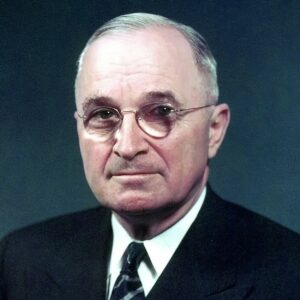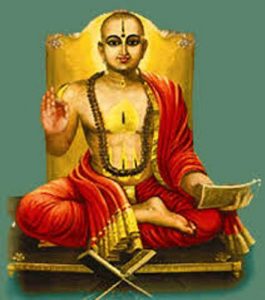King of Egypt, King of Persia, King of Macedonia… These are just some of the many titles that belonged to Alexander III of Macedon. The title he is most commonly referred to is Alexander the Great due to his reputation as a military leader and the fact that he is one of the most well known names in history. There are plenty of pieces of literature, paintings, sculptures, and descriptions that depict Alexander and tell of his battles and of his great empire. Still, despite all of our knowledge about Alexander, historians are still puzzled by the mystery surrounding his death. So the question stands, how did Alexander the Great die? I argue that Alexander died by assassination, or more specifically, by some form of poisoning.
Alexander was a great military commander and was even successfully able to execute the conquests of several large empires, including Persia and Egypt.1 It is said that his army never once lost a battle, and at the peak of his rule, the Persian Empire became one of the largest and most populated empires in history. People viewed him as a godlike being because of his military prowess and other great accomplishments as king. It seems that even he thought of himself as a god, as he would always wear sacred clothes mimicking the appearances of Artemis and Hermes.2 It is easy to see how being the king of such a large empire can give a man a bloated ego. It has even been documented that, among the many questions he would ask other philosophers, he would always ask, “How can a man become a god?” This god-complex of his most likely played a role in his actions, as well as to what led to his assassination. But before discussing possible motivations for him being a target of assassination, the two known accounts of his death must be examined.

There are only two known accounts of his death, but they differ greatly in the retelling of the king’s death. The first account can be found in the “Royal Diary,” a journal written on Alexander’s everyday life. It is presumed that it was written by Alexander’s chief secretary shortly after his death. The most supported and likely reason for this is that the diary was meant to silence the rumors that his death was a result of poison.3 The second source can be found in the pages of the Alexander Romance. The Alexander Romance is a book that contains mostly fictional collections of stories, but also contains some accurate information regarding Alexander’s death.4
Both sources place Alexander at a banquet and, in addition to having fallen ill, Alexander had planned to invade Arabia, which may have provided motive to kill him. This provides support for the theory of him being poisoned so that the invasion of Arabia could have been prevented. According to the account from the Alexander Romance, Alexander first experienced a stinging pain at the banquet and felt weak for the next few days, but had no symptoms of fever. On the other hand, the other account depicts almost the polar opposite of the Romance. It describes Alexander as first developing a small fever that slowly got worse and worse until his inevitable death.5 The differences make it hard to be able to narrow down the possible causes of death and also bring into question the reliability of these two accounts.
The possibility that Alexander was poisoned is fairly high, considering the symptoms he experienced, especially those described in the Alexander Romance, but these symptoms could also be attributed to a number of common diseases in Alexander’s time. Along with anyone who was against the Arabian invasion, there were a number of other people that could have wanted him dead. Another motivation could be Alexander’s Exile Decree. This was Alexander’s plan to allow the people exiled from Greek cities to return to their homes.6 It was a complex issue at the time and it is easy to see why people would oppose this and even possibly go as far as to assassinate Alexander.
With so many people against the king’s actions and so many possible motivations for assassination, it is hard to argue that no one was responsible for his death. The two accounts of his symptoms prior to death are the only things available to us, along with a few more records and accounts that are not as detailed or reliable. There are skeptics that believe these two accounts also cannot be trusted because they are written by people who were not in favor with Alexander.7 The article looks into whether or not Alexander’s death was due to his use of consuming alcohol. The article concludes that the authors of the accounts most likely wanted it to seem as though that was the case so as not to draw suspicion and to go against the notion that he may have been assassinated.
And so, given all the known facts and sources, it is reasonable to conclude that Alexander the Great died due to poisoning. He was going to die at the hands of his men sooner or later given the amount of people and subjects he ruled over and he was bound to make enemies. Unfortunately, his dreams of conquest came to an abrupt end, following him to his grave. Still, Alexander remains one of the greatest conquerors in history, having conquered a multitude of other empires and accumulating land and wealth for his own empire.
- Salem Press Biographical Encyclopedia, 2015, s.v. “Alexander the Great,” by Reynolds G. Clark. ↵
- Ian Worthington, Alexander the Great: Man and God (Hoboken: Routledge, 2014), 272. ↵
- Edward M. Anson, Alexander the Great: Themes and Issues (London: Bloomsbury Academic, 2013), 181-183. ↵
- Leo J. Schep et al., “Was the Death of Alexander the Great due to Poisoning? Was It Veratrum Album?,” Clinical Toxicology, no. 1 (January 2014): 73. ↵
- Leo J. Schep et al., “Was the Death of Alexander the Great due to Poisoning? Was It Veratrum Album?,” Clinical Toxicology, no. 1 (January 2014): 74. ↵
- Ian Worthington, Alexander the Great: Man and God (Hoboken: Routledge, 2014),263. ↵
- J. A. Liappas et al., “Alexander the Great’s Relationship with Alcohol,” Addiction 98, no. 5 (May 2003): 566. ↵



46 comments
Ruby Wynn
I found this a very interesting article. I had heard about Alexander the Great’s death before, but it seemed unclear how he died. While there are still a few theories presented in this article, I like how you give your reasoning for every step you take in persuading the readers that he died by poisoning. I enjoyed reading this article.
Sarah Nguyen
This was a cool article, and the author did a good job of exploring the possible theories of how Alexander the Great died. Honestly, I didn’t learn about him in any of my history classes, but I had heard of him and his conquests outside of class, which shows how massive an impact he made. The author did a good job at explaining the mystery of how he died, and creating his own speculations too.
Luke Lopez
This was a very interesting article on Alexander the Great, and the uncertainty surrounding his death. There are two accounts of Alexander the Great’s death that although has been examined for many years, historians have not been able to come up with a definitive answer as to how Alexander the Great died. Overall, this was a very well-written article that detailed the possibilities behind Alexander the Great’s death.
Esperanza Rojas
This was something that i was really interested in, especially when i found out that his death is still mysterious. I have a theory that the reason for his death is being hidden because he was considered so great and “godly” that he didn’t want people to know he died because of such a “mortal” way. I find it so ironic that someone so powerful and looked at, dies mysteriously.
Eric Ortega Rodriguez
This was an extremely fascinating article. In history class, I would study Alexander the Great and be given the date of his death but I was never given the reasons behind his death, and by reading this article, the two assumptions that were made seem fairly plausible considered Alexander had many enemies and people who were envious of him and would like to see him go away. Overall, great article and informative, Alexander the Great was a highly intelligent emperor, it is safe to say he would have expanded his rule further if it was not for his death.
Luisa Ortiz
The death of Alexander the great is one of the deaths that intrigues me the most, it is like out of nowhere. Maybe because everyone portrays him as an “almost god” it is hard to believe that he had to die eventually, whether was by poisoning or by the hands of his opposes Alexander the great still just a human, maybe everyone was waiting for a more dramatic death for a such a dramatic person.
Alexander Manibusan
While the idea of Alexander being poisoned does seem plausible, we must approach this with some skepticism. The idea of him also dying from sort of illness still also makes sense. A good portion of ancient Greek history is romanticized and so it is possible that certain historians claim that he was poisoned in order to view his death as something more dramatic than him dying from some small thing such as a fever. Plus most of the information of Alexander of the Great was made much after his death (crash course, Alexander the Great). And so while this article was very well made and very compelling, I am not wholly persuaded that he died from poisoning.
Natalia Flores
The death of Alexander the Great is something unusual since there is no accurate record of it, yet there is record of his battles and successes along with his God-complex. It’s odd that out of all these detailed records, this one is the most vague. The thought of him being killed rather than dying of illness is quite possible as you pointed out. He ruled over a large kingdom with varying cultures and religious beliefs. It’s highly likely that at least one group had been offended since they got conquered.
Timothy ODekirk
This story of Alexander the Great is extremely interesting to me, especially since it’s relevant to me because he is one of the figures that comes up throughout our lectures. I find it extremely mysterious and disturbing about the death of Alexander the Great. It is disturbing to me how historians after thousands of years still do not know exactly the cause of Alexander the Great’s death. It’s most likely to assume that it was assassination, but people just do not know for sure, which is mysterious indeed. This an extremely interesting story about Alexander the Great.
Julian Aguero
I find it puzzling that someone under his authority would want to kill a man that brought his empire more wealth and prosperity. I’m not sure why I never thought of Alexander has having a enormous ego, it seems logical that a person like Alexander has to be egotistical in order to convey such a great persona. I also believe that Alexander was killed and I most likely think it was constructed by an enemy who was not inside the empire. Although I might be mistaken because Alexander was known to have people who disliked his policies.